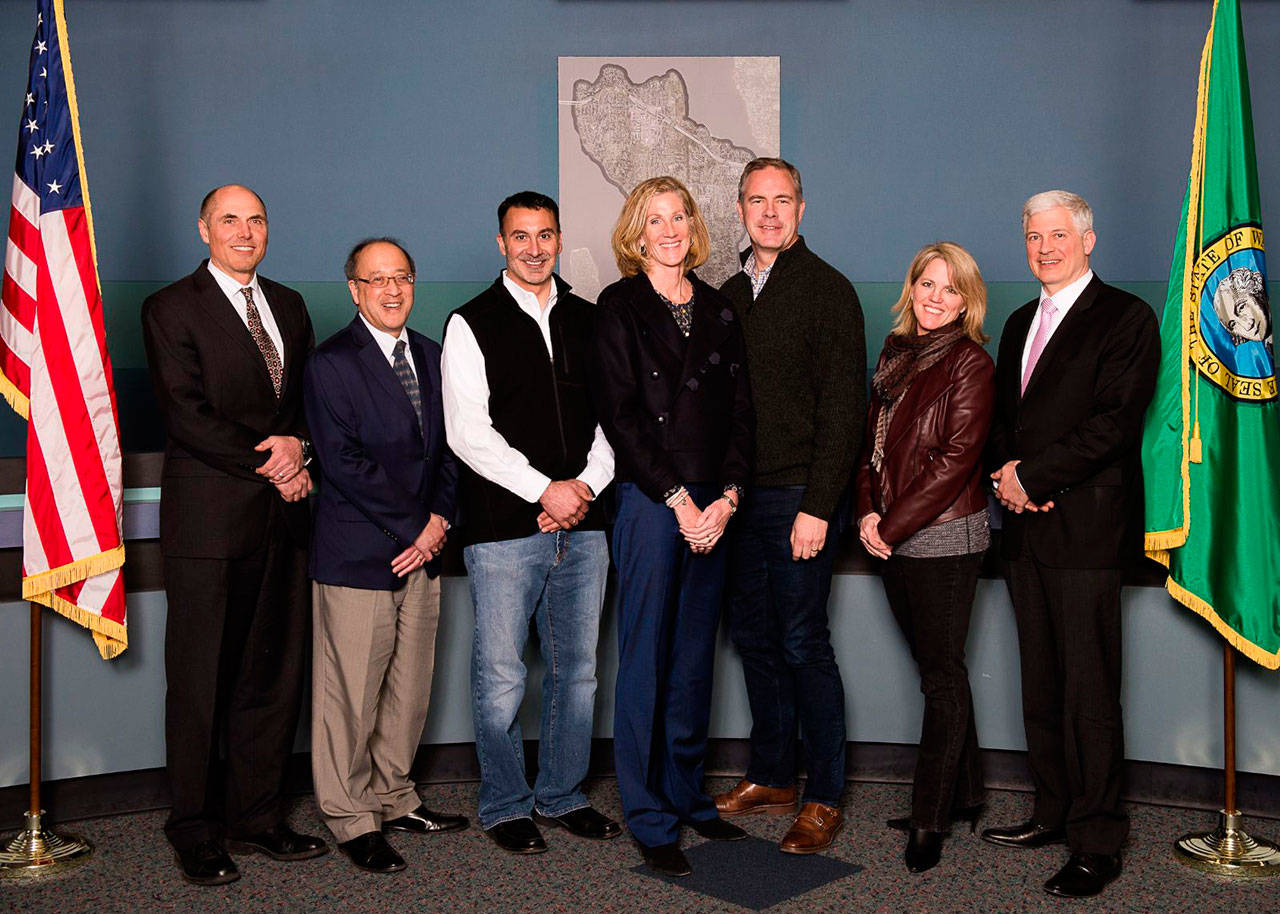At its Sept. 17 meeting, the Mercer Island City Council voted in support of State Initiative Measure No. I-1631, which would enact a carbon emissions fee on the state’s largest greenhouse gas emitters if passed by the voters in the November 2018 General Election.
The council voted unanimously, 6-0 (with council member Dave Wisenteiner absent), to endorse the measure after receiving testimony on both sides of the issue via a formal public hearing.
The initiative would enact a carbon emissions fee of $15 per metric ton of carbon beginning on Jan. 1, 2020; increase the fee by $2 annually until the state’s greenhouse gas reduction goals are met; and use the revenue from the fee to fund various programs and projects related to the environment.
The council members in attendance spoke on their position and motivations, citing concerns over the impacts of climate change and a warming planet.
Council member Bruce Bassett said he feels climate change is the “paramount issue of our generation,” and that though the Mercer Island community and its partners in King County-Cities Climate Collaboration (K4C) are making progress, it is “absolutely essential” that a price be put on carbon pollution. Council member Benson Wong said that though it is not local problem, the council was weighing in because “we’ve waited too long to take any action.”
Council member Wendy Weiker said the government has to work with businesses and nonprofits to help both the environment and workers as technology changes, and supports the initiative because “we know climate change is real — we know the science is clear.”
“We see the forest fires happening this past summer and previous summers as a shockingly immediate impact that’s occurring, but we see glaciers disappearing, we see ocean acidification, and we see the steadily rising global temperatures all as indicators that there’s no doubt that this is a moment when we need to act. It’s really a moment decades after we needed to act,” Bassett said.
Council member Tom Acker said the effects of climate change have been felt locally, with the poor air quality caused by wildfires in August and environmental factors leading to the death and disease of orcas in the Puget Sound. He said he felt it was an “important symbolic vote.”
Speakers in support of I-1631 included Brian Emmanuels, who represented Mercer Island Ready for 100, a group working toward 100 percent renewable electricity in the city by 2035, and Rev. Dr. Marilyn Cornwell, a Mercer Island resident and the vice president of the board of Earth Ministry, which engages the faith community in environmental stewardship and advocacy.
Randy Pepple, a spokesperson for the Vote No on 1631 campaign, noted some concerns with the initiative, including an alleged lack of accountability, tax increases for small businesses and families, and the fact that it contains exemptions for eight of the state’s 12 largest polluters.
Deputy Mayor Salim Nice said that when “we look at what we can and are doing, it’s not enough,” and that he feels he has to answer to future generations.
Some council members expressed concerns that this is being done through the initiative process, but noted that the state and especially federal government has not done enough to protect the environment.
“There’s rarely an initiative that I’ve ever seen that is perfect… but this is a major and effective step forward,” said Mayor Debbie Bertlin.
Before the public hearing, Bertlin noted that the agenda item was one of the limited exceptions to the rule that prevents the use of city facilities for campaigning.
“State statute prohibits the use of public facilities for the promotion of or opposition to any ballot measure except in limited instances,” according to a city press release. “RCW 42.17.130 allows the council to express a collective position or vote to support or oppose a ballot proposition if (a) any required notice of the meeting includes the title and number of the ballot proposition; and (b) the members of the legislative body or members of the public are afforded an approximately equal opportunity for the expression of an opposing view.”
See www.mercergov.org for more.



